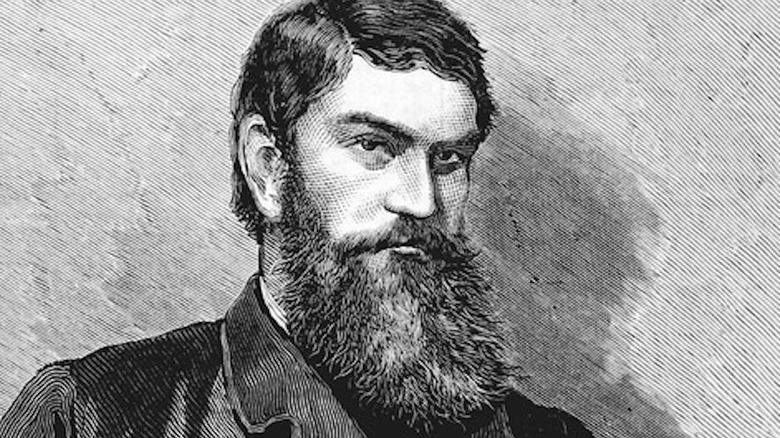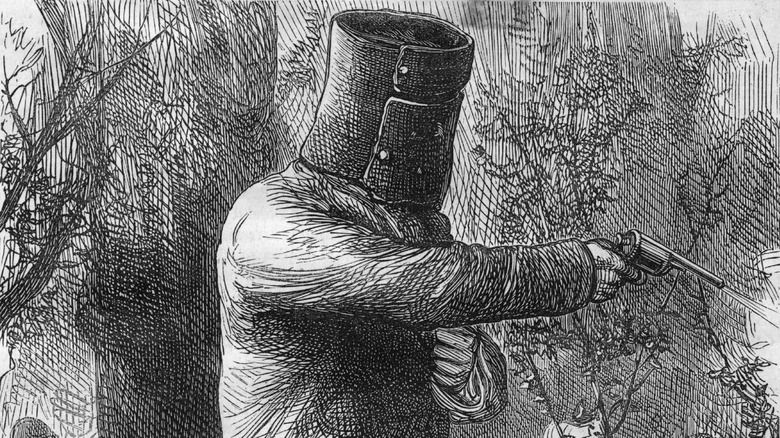This Is How Murderer Ned Kelly Was Finally Caught
Many cultures have folk heroes — men or women who, through pluck, luck, or sheer force of will, stuck it to "The Man" so hard that their names live on in history. The Swiss have William Tell (who probably didn't exist, according to The Smithsonian); England has Robin Hood (the reality of whose existence is muddled, to put it mildly, per National Geographic); the U.S. has Jesse James (who was very much real).
Australia has a folk hero who bears several similarities to James: Ned Kelly. The outlaw, who lived from 1855 until 1880, was, like James, quite real. Also like James, Kelly came from poverty and oppression, had a giant chip on his shoulder against the ruling powers of his day, and gained hero status among the populace through his criminal exploits, per Britannica. Oh, and both men were cold-blooded murderers. But while James met his end anticlimactically (a gang member shot him for the reward money, per History), Kelly came close to going down in a blaze of glory before ultimately facing justice on the gallows.
Ned Kelly was shot and then hanged
Kelly had a run of several years of outlawry during which he gained sympathy among some of the locals who, like him, were poor and mistreated by the ruling powers. But by June of 1880, Kelly and his gang knew their time was coming to an end. As the State Library of Victoria reports, the gang arranged what they knew would be their last hurrah at the train station in the town of Glenrowan, hoping that their final battle would inspire the locals to take up lives of rebellion like Kelly and his men.
The gang took hostages, in a manner of speaking, and took them all to an inn. It wasn't so much a hostage situation as it was a party: The gang and the locals, many of whom were sympathizers, danced and played games while they waited for the police.
According to the National Museum of Australia, Kelly, clad in his bulletproof armor (rendered in the image above), emerged from his hideout on the morning of June 28. Police shot at his unprotected legs, and eventually, weakened by blood loss, he collapsed and was arrested.
Kelly managed to survive to face trial, where he was convicted of murder. On November 11, 1880, he was sent to the gallows. As ABC News notes, legend has it that Kelly's final words were "such is life." However, that appears to be just a legend, and what he actually said was equally prosaic: "Oh well, it's come to this at last."

